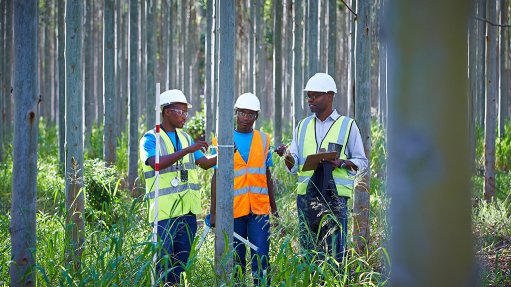Energy transition will take place in different ways at different rates in different regions
The energy transition – from high carbon-emitting energy sources to low and zero carbon-emitting energy sources – will vary across different regions and countries, pointed out TotalEnergies VP supply logistics Africa Sebastien Bariller. He was participating in a panel discussion at the 2024 African Refiners and Distributors Association conference, in Cape Town. The speed of the transition will also vary from region to region.
There were three challenges involved in the energy transition, he cited. These were – ensuring that the world’s growing population had access to affordable energy; ensuring energy security; and ensuring safe and cleaner energy.
Africa, for example, while needing cleaner energy, also needs to increase access to energy. This is needed to alleviate poverty and expand access to education.
Regarding the energy transition in Africa, there were a number of opportunities. These included the increasing public awareness of the issue. There was also what he called ‘green competition’ among countries and industries; the need for electrification; and the recent acceleration in improvements in energy intensity. Further, the already existing clean energy technologies were already having a significant impact.
There are also, however, a number of obstacles. Among others, there are too few public policies focused on energy demand and on changing public behaviour. Further, the distribution of the transition costs is not fair enough. And, of course, there is the need for funding.
He assured that TotalEnergies was beginning to decarbonise its energy mix. It was moving away from high-carbon emissions heavy fuel oil to much lower carbon emissions liquefied natural gas and liquefied petroleum gas. “We can now start the transition with this kind of product,” affirmed Bariller. (The company exited coal some years ago.)
The group was also, he reported, developing biofuels.
TotalEnergies is celebrating its hundredth anniversary, this year. According to its website, the group is aiming, by 2030, to reduce the proportion of high-carbon oil in its total sales to 30% (the proportion had been 65% in 2015) and increase the proportion of lower-carbon natural gas to 50%. Also by 2030, electricity is planned to form 15%, and biomass and hydrogen 5%, of sales.
Comments
Press Office
Announcements
What's On
Subscribe to improve your user experience...
Option 1 (equivalent of R125 a month):
Receive a weekly copy of Creamer Media's Engineering News & Mining Weekly magazine
(print copy for those in South Africa and e-magazine for those outside of South Africa)
Receive daily email newsletters
Access to full search results
Access archive of magazine back copies
Access to Projects in Progress
Access to ONE Research Report of your choice in PDF format
Option 2 (equivalent of R375 a month):
All benefits from Option 1
PLUS
Access to Creamer Media's Research Channel Africa for ALL Research Reports, in PDF format, on various industrial and mining sectors
including Electricity; Water; Energy Transition; Hydrogen; Roads, Rail and Ports; Coal; Gold; Platinum; Battery Metals; etc.
Already a subscriber?
Forgotten your password?
Receive weekly copy of Creamer Media's Engineering News & Mining Weekly magazine (print copy for those in South Africa and e-magazine for those outside of South Africa)
➕
Recieve daily email newsletters
➕
Access to full search results
➕
Access archive of magazine back copies
➕
Access to Projects in Progress
➕
Access to ONE Research Report of your choice in PDF format
RESEARCH CHANNEL AFRICA
R4500 (equivalent of R375 a month)
SUBSCRIBEAll benefits from Option 1
➕
Access to Creamer Media's Research Channel Africa for ALL Research Reports on various industrial and mining sectors, in PDF format, including on:
Electricity
➕
Water
➕
Energy Transition
➕
Hydrogen
➕
Roads, Rail and Ports
➕
Coal
➕
Gold
➕
Platinum
➕
Battery Metals
➕
etc.
Receive all benefits from Option 1 or Option 2 delivered to numerous people at your company
➕
Multiple User names and Passwords for simultaneous log-ins
➕
Intranet integration access to all in your organisation

















